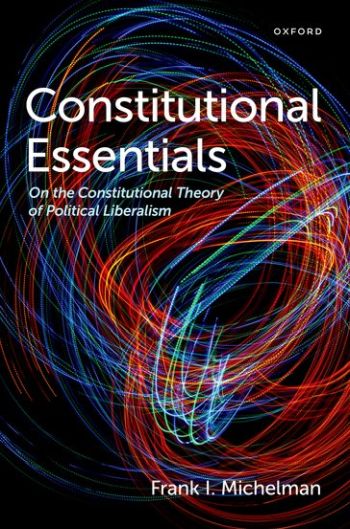
Is the constitution ideally "legal" or "political"? "Written" or "unwritten"? How thick or thin are its principles and guarantees? Where does constitutional fidelity fit among liberal political virtues? What of "restraint" in the conduct of judicial constitutional review, or "originalism" in constitutional interpretation? These are questions raised by lawyers in constitutional-democratic societies throughout the world.
In Constitutional Essentials: On the Constitutional Theory of Political Liberalism, Michelman not only raises these questions but explains why these debates persist in modern day constitutional democracies. Through the lens of John Rawls' seminal work Political Liberalism, Michelman responds to the problems governments of constitutional-democratic societies face from deep-lying disagreement among citizens. Rawls' suggested one solution: a "constitution," one that included a bill of rights-that all, despite other disagreements, could accept. Michelman explains Rawls' proposal, placing it within a duality of functions -"regulatory" and "justificatory" - for which, he says, lawyers in constitutional-democratic societies typically look to their countries' bodies of constitutional law.
A close examination of the constitution-centered proposition on political legitimacy, this book will be valuable reading to academics in the fields of politics, philosophy, and law.